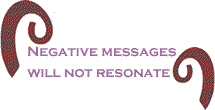Boston’s Gospelfest this year featured Rev. Donnie McClurkin,
the poster boy for African American ex-gay ministries, who
spews anti-gay religion-based vitriol at every public event
he can get as part of his outreach ministries to gay youths.
But at this event, McClurkin had to refrain from his usual
homophobic diatribes. And it was not because the spirit
moved him or any public protest, but rather because the
mayor’s office warned him. McClurkin’s folks knew if Donnie
got on his anti-gay soap box that not only would he never
sing in this town again at a city-sponsored gospelfest,
but also no place else.

MuClurkin
is a classic example of why homophobia is an ongoing problem
in the African American community, and it must be challenged
at every opportunity. However, the tactics and strategies
needed must derive from the community itself and in cooperation
with other faith and activist communities, in order for
the challenge and protest to be both successful and sustainable.
When
Don Gorton, organizer of Join the Impact – MA (JTIMA), a
grassroots campaign to promote LGBTQ civil rights, contacted
me on June 25th, offering his help in protesting McClurkin’s
upcoming appearance, I thought the invitation was sincere.
“Great
quotes in the Phoenix article. The Anti-Violence Project is on
board with your call to action to protest Donnie McClurkin’s
scheduled appearance at GospelFest. I also expect support
from Join the Impact MA and Truth Wins Out,” Gorton wrote
in an email to me.
When
suggestions came from me, Wayne Besen, of “Truth Wins Out,
who withdrew from the protest” and also from JTIMA members,
that Gorton needed to keep in mind racial, religious, cultural
and community sensitivities, he shunned them.
Gorton
wrote back in two separate emails stating why. “FYI. I’m
open to most any input on the M.O. for the protest, but
determined to go forward despite the sensitivities we need
to address.”  And
in another one he stated, “I rejected a suggestion from
a JTIMA member that we not carry signs - that would be tantamount
to canceling the protest.” And
in another one he stated, “I rejected a suggestion from
a JTIMA member that we not carry signs - that would be tantamount
to canceling the protest.”
But
in putting on this protest with racial, religious, cultural
and community sensitivities in mind the following things
needed to be considered:
1)
The demographics of the protesters. An overwhelming number
of white protesters will not effectively get the message
across. And for African American churchgoers who think being
gay is white thing, an overwhelming number of white protesters
will only corroborate their fallacious assumptions.
2)
Talking with a number of African American LGBTQ on a listserv
from the community, several suggested a dialogue with community
leaders and ministers - black and white - about this event,
stating that since Mayor Menino isn’t showing up, it would
be a ripe time to do a follow-up and open dialogue.
3)
With the Bible having an iconic image and importance in
the African American community, all signage must have biblical
phrases or references that resonate in the Black Church and in black theology. Negative
messages will not resonate. Messages about Jesus and M.L.King,
who talked about the Beloved Community asking why aren’t
LGBTQ in the fold, works.
4)
There is a movable middle of black ministers on LGBTQ issues.
If messaging is ineffective and/or disrespectful, it sets
back the work many of us African American LGBTQ activists
have been doing and are doing with these ministers. And
these ministers are the gateway to reaching the community.
5)
While clearly City Hall Plaza is a public space, black Christians
who will gather for Gospelfest see the moment as an open
tent revival of the Black Church. The Black
Church functions as a multiple site - private and public - and defines
itself as a “nation within a nation.”

But
Gorton felt that attacking McClurkin would not be attacking
the Black Church.
Rev.
Leslie Sterling, priest-in-charge of St. Bartholomew Episcopal
Church in Cambridge, an African American ally to the LGBTQ
community, and the only person of color to show up
for the protest, but took her collar off so as to not represent
the church, wrote Gorton telling him his thinking was wrong
and his approach could be deleterious.
“I
simply do not think it is possible to single out McClurkin
tomorrow as if he were separate from discriminatory attitudes
in the gospel music community and the black church as a
whole… if your protest is effective and noticed, it is likely
to cause hard feelings among people in those two communities
because either (a) they believe as he does and you disrupted
their Sunday praise and worship with politics, almost as
if you had brought protest signs into a church service,
or (b) they do not believe as he does and if you had approached
them differently they could possibly have been your allies,
but by starting the conversation with a slap in the face
you will get the relationship off on the wrong foot.”
One
of the reasons for California’s Proposition 8 passing is
not due to the LGBTQ community’s lack of passion for justice,
but rather it was due to the continually recalcitrant and
hubris attitudes of some white LGBTQ activists not reaching
out to communities of color, and thus, pushing their agenda.
And
Gorton proves he hasn’t learned that lesson.
BlackCommentator.com Editorial Board member, the Rev. Irene Monroe, is a religion
columnist, theologian, and public speaker. She is the Coordinator of the African-American Roundtable of the Center for Lesbian and Gay Studies
in Religion and Ministry (CLGS) at the Pacific School of
Religion. A native of Brooklyn, Rev. Monroe is a graduate from Wellesley
College and Union Theological Seminary at Columbia University,
and served as a pastor at an African-American church before
coming to Harvard Divinity School for her doctorate as a
Ford Fellow. She was recently named to MSNBC’s list of 10 Black Women You Should Know.
Reverend Monroe is the author of Let Your Light Shine Like a Rainbow Always: Meditations on Bible
Prayers for Not’So’Everyday Moments. As an African-American
feminist theologian, she speaks for a sector of society
that is frequently invisible. Her website is irenemonroe.com.
Click here
to contact the Rev. Monroe. |

